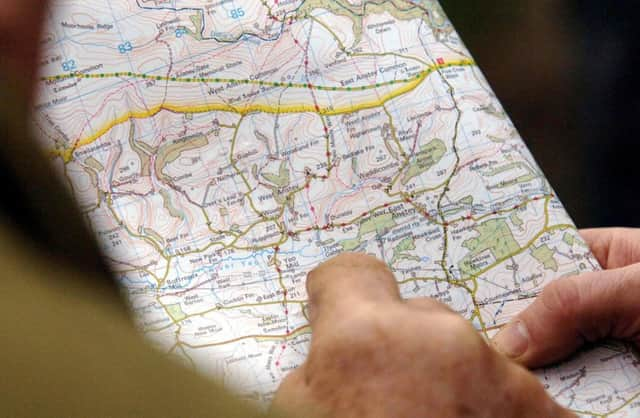Will farming industry find the right destination?


Two things can now happen. The entire industry can find common cause and agree a plan that delivers for farming, the environment and the food industry as our biggest employer.
The other risk is that the industry will be consulted to a standstill, known in sport as paralysis by analysis. That could easily happen, thanks to DAERA posing a massive list of questions.
Advertisement
Hide AdAdvertisement
Hide AdTime will tell where this leads, but at least we now have a road map of sorts, even if it is still folded and the final route uncertain.
While there are big decisions to be taken here, the real Brexit game is being played out between London and Brussels. The recess at Westminster has taken Brexit out of Conservative politics, but this is a break rather than evidence that issues have been resolved.
It is clear now that there is a desperate need for common sense to be introduced to the Brexit debate. We have ended up debating the issues that are less important and ignoring the core problems. Politicians need to accept that Brexit is going to happen and that what is needed is an outcome that minimises damage to the economy here and in the EU-27. That demands compromise.
It is time heads of state across the EU, and the UK prime minister, demonstrated that they are in charge. They, and not the European parliament, European Commission or Tory backbenchers at Westminster, need to be making the running.
Advertisement
Hide AdAdvertisement
Hide AdThe focus tends to be on the failings of the UK government. That is not surprising when the cabinet is in disarray and eurosceptic backbenchers seem to have more power and influence than the prime minister. However there are also big problems in the Brussels approach that are not sufficiently in the spotlight. Those representing the Commission and European parliament in the discussions have fallen into the Brussels trap of believing the UK must be punished for leaving the EU. This the EU’s federal agenda, which is not official policy, but remains the goal for many.
Member state governments of the EU-27 need to show some backbone by telling the Commission it needs to negotiate rather than preach. Its concern is that if the UK manages to leave with a successful trade deal in place, others that are drifting to the right and becoming more eurosceptic will want the same. That would be the end of the EU federal project and that is an anathema to many in Brussels.
However the big players, whose economic interests would be threatened by a hard Brexit, need to put those ahead of protecting a federal EU model. Countries, including Germany and Ireland, need to make clear that economic interests must prevail. That can only happen if a sensible deal is reached with the UK. The political dynamics of the UK mean it is not bluffing when it says that without a deal a hard Brexit is inevitable.
Brexit becomes more complex by the day. This is not because officials are trying to make it difficult. It reflects the fact that for 45 years UK legislation has been guided by Brussels. There is no way around this, but the pain could be eased with compromise. The challenge is to suggest where compromise might be found. If this does not happen we are heading for a hard Brexit on March 29 next year and that will change the foundation of the DAERA framework document.
Advertisement
Hide AdAdvertisement
Hide AdCompromise is about making Brexit a success. My guess would be that when the dust settles the UK will buy into one of two ‘off the shelf’ options. The Norway model offers single market terms in return for money and free movement of people. The UK has already effectively granted free movement, so this could deliver value for the £39 billion divorce bill.
The other is a simple free trade deal, like the EU has with Canada. This would work for most of the economy, but perhaps not for agriculture because of resistance from EU-27 farmers.
The alternative of a deal just for the UK looks increasing difficult, because it would involve loss of face on both sides in a high stakes political game.